Your roles and responsibilities will probably change throughout your career, but the new knowledge you pick up from the people you work with will follow you no matter where you end up. That continued learning is particularly important for developers, because technological paradigms shift and because their work can have a major impact on other sides of the business.
To learn more about how companies foster collaboration and learning among peers, we asked members of six Chicago tech teams about their experiences.
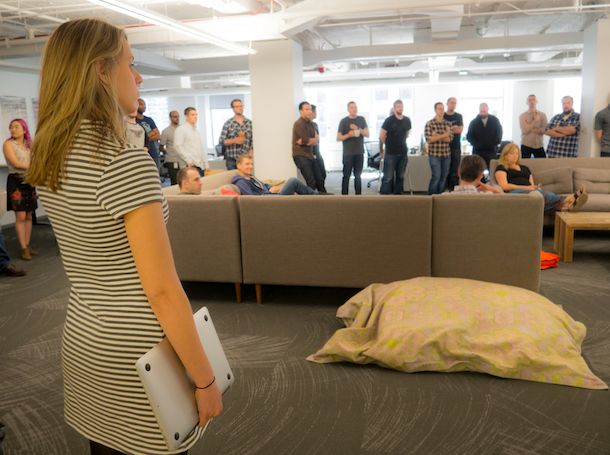
Signal’s cloud-based marketing technology platform helps brands and publishers reach customers with consistent messaging, whether they’re surfing the web on their phones, browsing social media or shopping on their laptops. The company’s developers work in small teams, but there’s still room for collaboration and learning across the organization.
What is the most important thing you’ve learned from a colleague?
Salman Malik, software engineer: It's rare that a week goes by where I haven't benefited from a fellow engineer's knowledge and experience at Signal. In one example, a member of another team set up daily sessions to go over code with me because he knew that I wanted to learn. Thanks to him, I’m now comfortable writing code and building apps by myself. This is the most significant example of learning on the job in my eight-year career.
How does Signal’s tech team collaborate?
Stephen Mullins, engineering manager: I've yet to stagnate at Signal. We have small teams of six or eight people, as well as collaboration across the larger engineering organization, which facilitates a lot of feedback from my peers, especially through code reviews. Signal is a place where I spend a healthy amount of time at other people's desks and working with remote engineers. Anyone can make improvements to any part of the system, and we are always exploring new technologies and patterns to help our platform. Ultimately, this benefits both our products and our developers.
What makes your tech team’s culture unique?
Mullins: Hack Weeks and Shark Weeks are very unique to Signal, and they’re things that the entire company looks forward to and enjoys. During these weeks, all teams take a week to work on special projects before presenting them to the company. Hack Weeks are open, whereas Shark Weeks are focused on performance and reliability improvements. It’s time of renewed creativity, but it’s also a chance for employees to shine and demonstrate great work outside of their day-to-day projects. We've recently started giving awards for the best presentation and delivery.
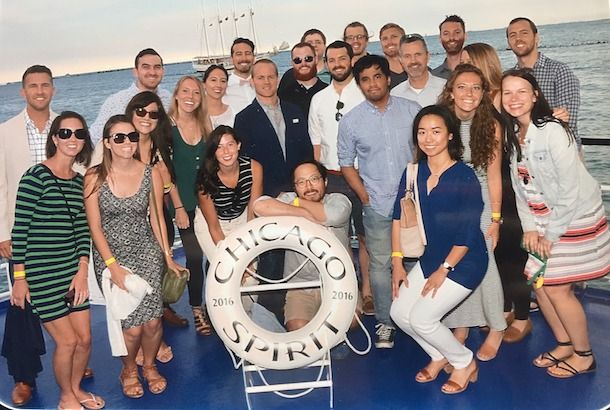
RedShelf creates digital tools that simplify content distribution for academic publishers, and that let consumers access their textbooks, articles and academic papers from any device with a web browser. The the company’s developers, working in a lean team means there’s ample opportunity to step up to the plate and make executive decisions — as well as to learn more about the world of academic publishing.
What is the most important thing you’ve learned from a colleague?
Ryan Fraser, DevOps engineer: I think the biggest thing for me coming to RedShelf was breaking out of my mold for constant approval on technical decisions from my manager. Scott has really empowered me to own my work in a new capacity by letting me decide what's best for the team when it comes to DevOps here. While it may not be a technical trait, it's a professional and interpersonal skill that will transcend the technical work I'm doing for RedShelf.
How does RedShelf’s tech team collaborate?
Howie Bollinger, software developer: When I started at RedShelf, our size and development needs didn’t really demand any formal product development processes. Between four developers, we were able to accept work as it came in and deliver results as quickly as we could manage. Having been here for almost three years, I’ve seen the addition of new roles like product owners and scrum masters that have led to company-wide adoption of Scrum methodologies. The experience we’ve been able to bring in through new hires has been invaluable in terms of allowing our development teams and processes to scale and deliver more and more features and products as we continue to grow. It’s an ongoing process, and we are constantly working together to evaluate and improve the ways in which we operate.
What makes your tech team’s culture unique?
Fraser: I could mention all the perks — and don't get me wrong, we still love them — but I think the part that truly makes us unique is that we treat our job as more than just a job. Calling it a lifestyle sounds a bit tacky to me, but unashamedly that's what I'm going to go with. We have a team that's all in on the RedShelf cause. We work late because we're passionate about our projects, not because we feel obligated to overachieve. It's a huge departure from the nine-to-five, white ceiling tile, florescent-lit mantra found in other organizations. That was the biggest appeal to me when I interviewed with the company.
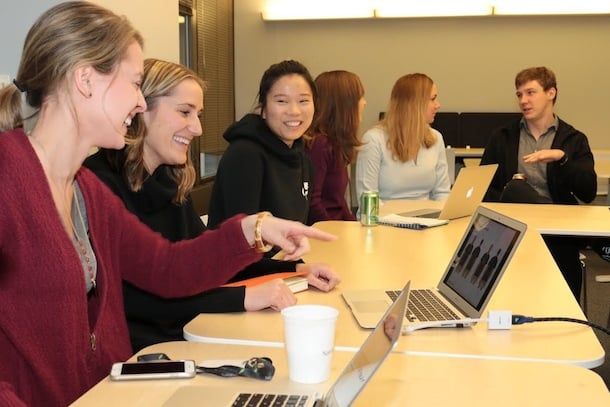
Natural language generation company Narrative Science uses artificial intelligence to generate written reports from data sets. DevOps manager Craig Booth said working with the Narrative Science team has broadened his technical horizons beyond the point of recognition. But the most important thing he learned from a fellow developer had nothing to do with technology.
What is the most important thing you’ve learned from a colleague?
All of our developers take a shift where they are “on call” for our product — essentially available to troubleshoot problems for a week. As a new engineer during my first on-call shift, there was a problem with some of our infrastructure. It was Saturday night, I was completely out of my depth and struggling.
At that point, one of our senior engineers came online and calmed me down. He didn't have any special knowledge that helped me debug the problem any faster, but nevertheless he was willing to sit with me and help me think through (and eventually solve) the problem. That attitude of supportiveness has shaped how I try to behave as an engineer. Now, as one of our longer-tenured engineers, I always go out of my way to be available, helpful and present for people who are struggling to solve problems in stressful situations.
How does Narrative Science’s tech team collaborate?
I can't imagine how I'd function without my team. We have such a diverse set of skills, from software development through infrastructure, systems administration and quality assurance. When I have a question, I take it to the team and get at least half a dozen different viewpoints on the best way to solve it. Working with a cross-functional team has broadened my technical horizons to such a significant degree that when I look at the engineer I was when I arrived at Narrative Science, I barely recognize myself. That makes me proud.
What makes your tech team’s culture unique?
Narrative Science was founded out of a research project at Northwestern, and we’re now in our seventh year in business. Much of what we do is new territory, and it’s genuinely unsolved and genuinely difficult. That forces us to check our egos, be humble and to admit frequently that we don’t know the answer. Moreover, I have never before worked in a place with such a spirit of collaboration. I've been in so many design meetings where one of our junior engineers raises a point and everybody is willing to stop, take their concerns seriously and sometimes pivot in a whole new direction.

Frontline Education’s suite of K-12 administrative software is used by nearly 10,000 educational organizations to streamline operations and support staff members in their work. The company’s developers say collaboration and learning opportunities are some of the biggest perks of working there, whether that means spitballing ideas or attending monthly demos about their colleagues’ side projects.
What is the most important thing you’ve learned from a colleague?
David Caughill, senior database administrator: Collaboration between developers and engineers is hands down my favorite part of working here. At the heart of that is the “What if we…” question. For instance, my colleague Blaise and I are frequently shooting articles and GitHub projects back and forth on Slack, asking: “What if we tried to do ‘x’ with ‘y’?” It’s that willingness to just toss ideas back and forth, build stuff, break stuff and then rebuild stuff that really helps fuel those conversations. Those interactions have fueled a huge part of my learning here at Frontline and I am extremely thankful for coworkers willing to just toss ideas up and embracing the feedback that returns.
How does Frontline’s tech team collaborate?
Travis Miller, senior developer: We build space into our day-to-day routines to share what is going well and what we are struggling with. On my current team, we actually try to do more than 50 percent of our work as a team rather than individually, so that we are benefitting from everybody’s expertise immediately as we do the work. On past teams, I also have worked with more junior teammates with deeper skills in particular tools or technologies and have asked them to teach me how to use these tools. This gives me a chance to learn new skills and communicates to them their value to me and the rest of the team.
What makes your tech team’s culture unique?
Dan Bergen, software developer: The Chicago team runs two-week sprints and we depend on our sprint retro to continuously improve as individuals and as a team. Often, one of the retro's takeaways is to learn more and knowledge-share. As a direct result of those retros, we've organized book clubs around different topics and thrown together lunch-and-learns. We also host a Demo Day once a month for personal projects and stop by the occasional meetup. The best part is that we know that if we miss something or have a new interest or learning need, we'll be able to catch it and act on it.
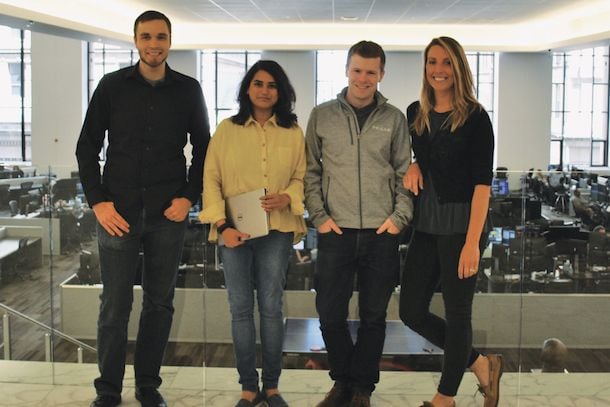
PEAK6 is a tech-driven investment firm headquartered in the Chicago Board of Trade Building. In the world of investment and risk management, changes made on the technology side can have major implications for how the business side operates — and vice versa. Therefore, PEAK6’s engineers work closely with each other, as well as with the rest of the company, to understand the nuances of every little thing they’re working on.
What is the most important thing you’ve learned from a colleague?
Luke Peeler, software engineer: I was trying to debug an issue I was noticing with our applications not processing messages in a timely manner. I needed some proof that the messages themselves were arriving to the intended server. To help me figure this out, a colleague suggested using a command-line utility called netstat that can show when there is a build-up of incoming data from the network before it reaches the application. This helped give me the evidence I needed to identify the application as the bottleneck in message processing.
How does PEAK6’s tech team collaborate?
Paul Whalen, software engineer: There is a never-ending cross-pollination of knowledge within and across teams at PEAK6. Very little happens in a vacuum here. I might be the least knowledgeable member of the team on a specific domain problem in finance, while being the most knowledgeable member of the team on another thing, like our system architecture. The essence of what we are doing as a team is making sure we combine our knowledge to solve a problem. And if I’m solving a problem that seems too easy, it’s probably because I don’t fully understand it yet. In that situation, I should seek out someone on the business side or tech side to make sure everyone is actually on the same page.
What makes your technology team’s culture unique?
Palak Jain, software engineering manager: There is no hierarchy based on seniority, which gives younger developers a chance to work as equals and opportunities to learn and grow. Anyone can step up, own and lead. The relative smallness of the company and diversity of different pursuits requires every developer to be in tune with our software, from ideation to supporting it in production. Market conditions change often and with very little advanced signal; we focus on responding in kind by quickly identifying areas of improvement and opportunities to best capitalize on the current environment.
We also recognize that the strongest teams interact beyond the work at hand. Our team came up with an idea of a developer book club. Every two weeks, someone chooses an article or book that everyone else reads and hosts a discussion. The reading material may be technical, cultural, philosophical or about design and programming practices.
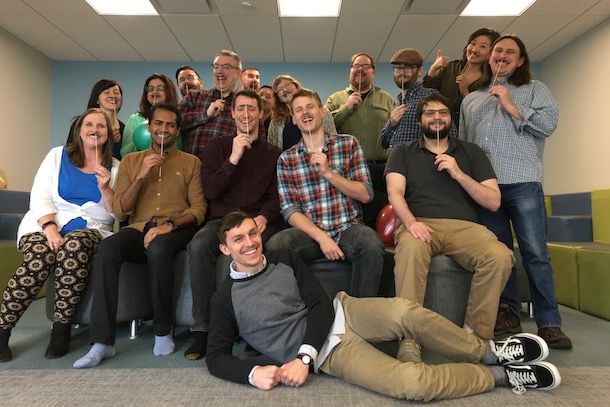
Instructure uses technology to improve the learning experience. Its suite of products range from an online learning platform used by educational institutions to applications interactive video lectures and corporate learning. For QA engineer David Tan, working on the company’s solutions has provided opportunities to learn about new deployment technologies, as well as gaining a new perspective on customer segments that are often overlooked.
What is the most important thing you’ve learned from a colleague?
Ever hear the phrase: “It works on my machine”? The usual response to that statement is: “But it breaks on mine.” The solution to that problem is Docker. Docker creates a microenvironment on someone’s machine, which they have to rebuild every time they run it. This way, when they check things in, they include the build file which includes all the items needed to build the exact same environment on the test machine.
I also learned about testing software for folks who are disabled, either through poor vision or lack of the motor control required to use a mouse. Did you know that 20 percent of the population is disabled in some way? That’s a 20 percent market share most companies are ignoring.
What makes your tech team’s culture unique?
We care. We care about each other. We care about what we’re learning. We care about what we’re teaching and sharing with others. Have you ever been told that something would be nice to have, but that you just don’t have time to build it? Well we have a quarterly hackweek, where we stop what we are doing to do those projects that we always felt needed to be done!
Images via featured companies.
What's your company's story? Let us know with a tip or a tweet @BuiltInChicago




